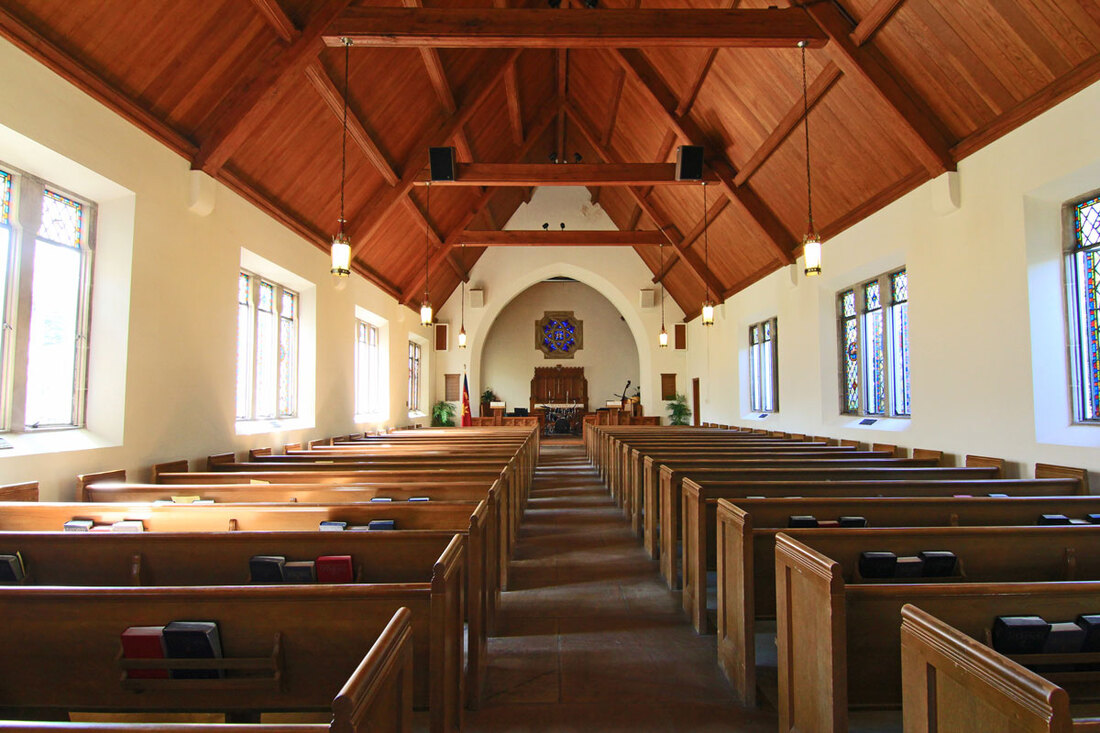|
In the coming weeks, pastoral care needs will escalate exponentially as COVID-19 impacts continue to increase. Here are some ways your ministry team can prepare:
Creating a Trajectory Map
Use the Phases of Disaster as a starting place, and begin to draft a trajectory map for your organization or community. You can share your maps on twitter, facebook, instagram, or linked in, using hashtag #carerestores. As you're creating your map, consider the differences your organization or community are experiencing compared with traditional understandings of episodic or singular incident disasters. For example, many groups are finding their sense of the initial "hero" stage has been a far sharper incline or spike, as leaders and volunteers have rushed in this last week to solve as much as they can and now, even within just a week or two, are experiencing significant senses of fatigue. The fatigue appears to be related to a combination of the strong push to help along with the remarkable speed at which new information is released, often changing and becoming out-dated even hour by hour. Continue to use your map as a draft or living document with your team, a template that you can update over the coming weeks and months. Recognize the Range of Impact Over the next several weeks and months, your congregants, ministry recipients, or community members, will experience a range of impacts. Some of these will be directly COVID-19 related. For example:
Some of the impacts will be indirectly related to COVID-19. For example:
Pacing Care for Sustainability As you consider what needs already are present and what may be coming, in what ways can you and your staff pace and nourish yourselves now so that you can avoid burnout and provide sustainable care through the long-term?
Here are some helpful resources for understanding trauma, pacing, and sustaining long-term care:
In-depth Training Manuals: General Ministry Training Manual Youth Ministry Training Manual Spiritual Direction Training Manual Download Free Network Inventories: Spiritual Care Network Inventory - Congregational Spiritual Care Network Inventory - Personal Youth Leaders' Care Network Inventory - Congregational Youth Leaders' Spiritual Care Network Inventory - Personal Further Reading: Congregational Care During COVID-19 Ministry in the Time of Public Health Crisis COVID19 Becoming a Companion along the Valley of the Shadow of Death How Long Term Response to Pandemic Differs from Other Types of Disaster Response Metabolizing Adversity
0 Comments
At the Institute, we have a phrase we use in times of collective trauma response: disaster is your business now. It's a mantra that helps us and our service recipients bring to mind the new reality that now is not business as usual.
Even so, all of that is easier said that done. It's difficult to fully take in all that any disaster means, let alone what the ramifications will be of a global pandemic.
In terms of congregational care, here are some important things to consider is you focus on the primary business of response to COVID-19. Mental, Emotional, and Spiritual Health The longer quarantines last, the less people are infected or die, but the more behavioral health challenges may arise related to people being cooped up in their homes, having limited touch, and having lost significant income or jobs. The shorter quarantines last, the more people are infected or die. This presents additional behavioral health challenges related to grief and bereavement, especially if people are unable to visit their loved ones in times of distress or death, as well as challenges related to conducting memorial services under these circumstances. What you can do to prepare: Continue to keep your staff and self informed about the trajectory of the virus in your community. Maintain an up-to-date referral list of behavioral health providers in your community to refer your congregants to as needed.
Worship and Care
Depending on the trajectory of the virus in your community, your congregation may need to provide worship and pastoral and peer care services remotely for many weeks or months. Your staff and volunteers also may need to provide ongoing volunteer services to assist more persons in your congregation or community who are unable to access basic necessities, including groceries, assistance with utilities maintained online, banking, and so forth. What you can do to prepare: Continue to keep your staff and self informed about the trajectory of the virus in your community. Also stay informed about what services your greater community is providing that your congregants can access as needed, or how your congregation can assist your greater community in meeting needs. Consider ways you can help your healthy volunteer base pace themselves for the long term. Encourage volunteers and staff to take regular breaks and not over-function, in order to be available for the duration and avoid inadvertent burnout. If you are part of a smaller congregation, consider partnering with a larger congregation in your area that can assist with remote worship and care services. Financial Support Your congregants, your community, and your congregation likely will experience financial challenges in the weeks and months ahead. These may include loss of jobs, loss of businesses, significantly reduced investments, reduced donations, and so forth. What you can do to prepare: Continue to keep your staff and self informed about the trajectory of the virus in your community. Consider whether there are important, and frank, conversations that may need to be had with your governing body about the reality of your congregation's financial state before the virus and what it may experience with loss of income. Recognize the fact that you may have to pace not only yourselves but what you focus on in the weeks ahead to ensure stability, if you are able. If your congregation is not facing significant financial risk, consider the ways you may prepare to assist or even lead your community in providing financial assistance for persons in the community that may endure great financial challenges in the weeks ahead. Remember that you may not have the size organization to address all types of needs, and that you personally cannot be all things to all people. Anticipate now the kind of person you want to be, and the kind of people you want to encourage your congregants to be, in light of long term challenges and what is feasible. Take time now to prepare for how best to practice those traits amid remarkable adversity. Additionally, you may find these posts helpful as well:
Rev. Dr. Kate Wiebe serves as the Executive Director of ICTG. She is an organizational health consultant and pastoral psychotherapist. She lives with her family in Santa Barbara, CA.
On March 13, 2020, Desta Goehner, Director of Congregational Relations at California Lutheran University convened an online forum for over 200 clergy, pastors, and faith-based leaders to consider together what ministry may look like in the days, weeks and months to come around the public health crisis related to the coronavirus COVID-19.
The conversation included the stories, wisdom and experiences of these four: 1. Mike Anderson, a pastor in the epicenter of Kirkland, WA who shifted ministry, worship and pastoral care due to COVID-19. 2. Priscilla Austin, a Seattle area pastor, who describes how ministry is changing and also how she is caring for herself in the midst of it all. 3. Kate Wiebe, MDiv, PhD, trauma expert and Executive Director of the Institute for Collective Trauma and Growth, who shares about what ministry looks like in times of crisis and trauma. 4. Rozella White, coach and disaster chaplain, who talks about spiritual care and emotional support for leaders in times of crisis. Together, along with a vibrant chat room conversation with many participants, Desta and the speakers fostered a powerful time. Below you can find the resources related to the talk: 1. Recorded web gathering: http://bit.ly/MITCCLU 2. Open Google Drive: http://bit.ly/MinistryintimesofCrisis In this folder you'll find the chat box notes with resources and questions, the recorded web gathering and the slides with the guest speaker information. 3. Webpage with all the details: http://bit.ly/CLUcongregationalrelations This gathering also developed into a weekly series, which you can find more details about on the CLU Congregational Relations webpage listed above.
Help sustain online education by making a financial contribution today or becoming a monthly donor. Thank you for your generosity!
|
�
CONGREGATIONAL BLOG
From 2012-2020, this blog space explored expanding understanding and best practices for leadership and congregational care.
This website serves as a historical mark of work the Institute conducted prior to 2022. This website is no longer updated. Archives
July 2020
Categories
All
|




 RSS Feed
RSS Feed
